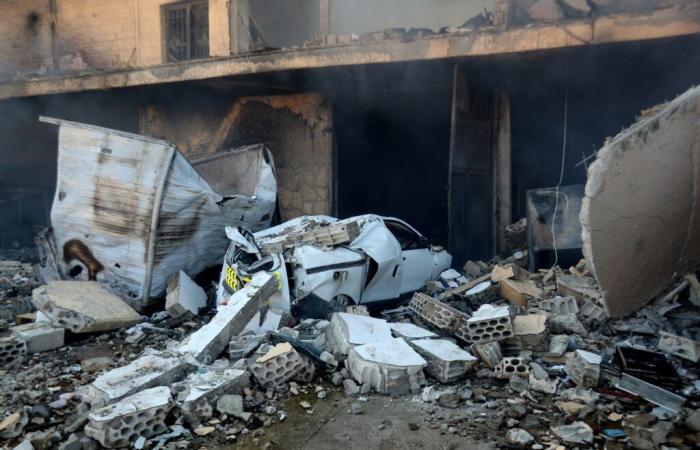The Israeli security cabinet must decide this Tuesday, November 26 on a ceasefire agreement in the war against Lebanese Hezbollah, according to an official, with the United States affirming that such an agreement was “close”.
These announcements were made after an intensification in recent days of deadly Israeli strikes against strongholds of the pro-Iranian movement in Lebanonwhile international actors redoubled their efforts towards a ceasefire.
On October 8, 2023, Hezbollah opened a front against Israel in support of Hamas, its Palestinian ally, target of a destructive offensive in Gaza launched by the Hebrew state in response to an unprecedented attack carried out by the Islamist movement against its territory on October 7, 2023.
After a year of cross-border violence and after weakening Hamas in Gaza, Israel concentrated its operations in Lebanon by launching an intense bombing campaign starting on September 23 on Hezbollah strongholds.
“Significant” progress
The Israeli security cabinet “will decide on Tuesday evening” on a ceasefire agreement, an Israeli official told AFP on condition of anonymity, without providing further details.
“We think we have reached the point where we are close” to an agreement, declared for his part John Kirby, the spokesperson for the White House National Security Council. While emphasizing that nothing has yet been achieved.
For the Élysée, discussions on a ceasefire in Lebanon have “advanced significantly”. Calling on Israel and Hezbollah to seize this opportunity “as quickly as possible”.
According to the American news site Axiosthe agreement is based on an American project providing a 60 day truce during which Hezbollah and the Israeli army would withdraw from southern Lebanon bordering northern Israel, to let the Lebanese army deploy there.
“Big mistake”
Always according to Axiosthis agreement includes the establishment of an international committee to monitor its application. The site reported American assurances to support Israeli military action in the event of hostile actions by Hezbollah.
Mediations are carried out on the basis of UN Security Council Resolution 1701 which ended the previous war between Israel and Hezbollah in 2006. A resolution according to which only the Lebanese army and peacekeepers can be deployed on the southern border of Lebanon.
Successively, the head of diplomacy of the European Union, Josep Borrell, and the UN called for a ceasefire. But for the Israeli Minister of National Security, Itamar Ben Gvir (far right), who is not a member of the security cabinet, a ceasefire would be “a big mistake”.
Israel says it wants to put Hezbollah and Hamas, allies of Iran, its enemy, out of harm's way.
Read more






